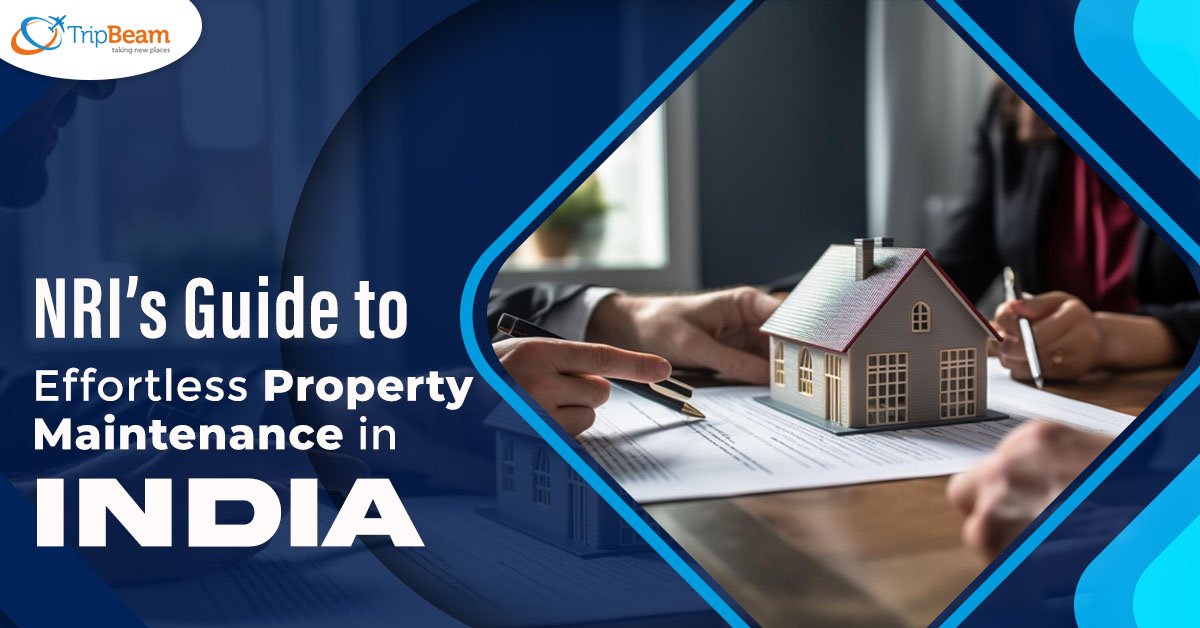
If you’re an NRI living anywhere in the world and you always want to come to India, you probably have to consider a lot of flight options, such as finding cheap flights to India from the US. If you own property in India, like a house, land, or apartment, it can be challenging to manage from afar. Over the past year, NRI investments in India’s residential real estate have increased by 35%. This is with average amounts ranging from ₹90 lakhs to ₹1.5 crores. This indicates a significant increase in NRI interest. This could be attributed to factors such as:
- Favorable market conditions
- Excellent location prospects.
However, understanding the complexities of these investments can be difficult. We created this guide to provide critical insights. This will be the knowledge you need to make informed decisions. These should be considered to save money while purchasing property in India. Let’s go deeper to understand each of the critical factors that NRIs need to know while investing in real estate.
Property types available for purchase
As an NRI purchasing property in India, you must be informed of your possibilities. The Reserve Bank of India stated that “NRIs and OCIs are regulated by the Foreign Exchange Management Act (FEMA) of 1999.” The act specifies that as an NRI, you can purchase immovable properties such as residential and commercial properties without previous RBI approval. Farmhouses, plantation property, and agricultural land are some of the exclusions. Ownership of certain limited properties is only permitted through inheritance.
Comprehending Ownership
As an NRI looking to buy a home in India, you have several ownership options:
- Sole Ownership
This option entails owning the property without any co-owners. You will have full control and accountability over the property.
- Co-ownership with another NRI
Two NRIs can own real estate together. However, co-owning property with another NRI entails sharing rights, obligations, and prospective financial contributions. It is recommended to ensure explicit agreements for smooth cooperation. However, consider purchasing a property in India jointly with an Indian resident. By the way, if you’re looking to book cheapest business class flights to India from USA or any other flights, Tripbeam has got you covered!
It is vital to know that you can choose any ownership option and begin property acquisition in India, even if you are not physically present during the proceedings. Under the Power of Attorney Act, you can make the process easier by granting a Power of Attorney to someone in India to act in your place or represent you in any property-related procedures. To complete this procedure, you must endorse the document on a stamp paper in front of a local lawyer in your particular country. Once the document has been legally authenticated, it must be delivered to India within three months for adjudication. The designated attorney will next go through a registration process at the registrar’s office, finishing the complete procedure smoothly.
Loan Eligibility
As an NRI purchasing property in India, your house loan eligibility is the same as that of any Indian citizen. It allows you to borrow up to 80% from banks. According to FEMA regulations, the loan amount cannot be placed directly into your bank account. Instead, it must be transferred to the seller’s or developer’s account. You can repay the loan with monies from your NRO/NRE account or FCNR deposits.
Documents Required
The paperwork listed below is what you’ll need when buying a property:
- Copy of Indian Passport and Visa
- PAN Card
- Power of Attorney (POA)
- Work Permit, Employment Contract, or Appointment Letter:
- Bank Statements
- Salary Certificate or Payslips
- Income Tax Returns
- Credit Bureau Reports
Payment Mode
Under RBI regulations, payments for real estate in India have to be made using recognized banking channels. Furthermore, kindly be informed that your payment is subject to all applicable local taxes and charges. As an NRI, you can either remit funds abroad into INR or use the balance in your NRE, NRO, or FCNR accounts or house loans (as previously discussed). If you choose to make payments through an NRE, NRO, or FCNR account, note that:
- The NRE account is used to spend international earnings in India.
- The NRO Account controls money earned within India.
- The FCNR account is used to keep a fixed deposit account in India.
- The decision should be made based on your individual requirements.
The ideal places to buy
Now armed with essential information, let’s delve into the top cities to facilitate your exploration.
- Delhi NCR
- Hyderabad
- Bengaluru
- Mumbai
If you’re thinking about owning property in India and planning a trip there, consider book last minute flight deals to India from USA. This will give you a range of options and the latest offers. This guide will help you understand the various aspects of non-resident Indians buying property in India.




